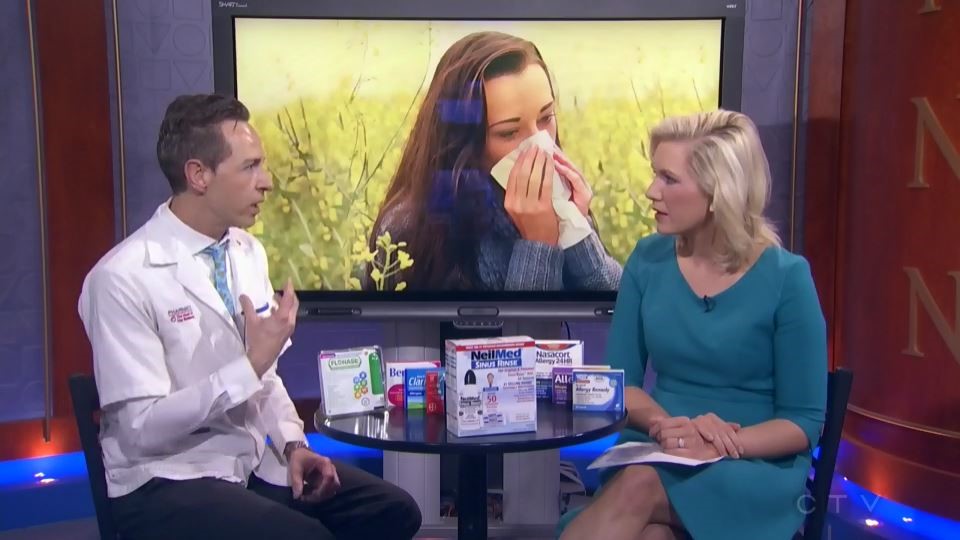London Drugs Pharmacists Offer Tips on Minimizing Seasonal Allergy Symptoms
For the 20 to 25 per cent of Canadians who are affected by seasonal allergiesi, there are now more relief options available over-the-counter without a prescription.
London Drugs pharmacist Jason Chan-Remillard recently appeared on CTV Morning Live Calgary to talk about these relief options, and to share his tips for spring allergy season. Watch the full interview here.

One new option for relief is Flonase Allergy Relief, which was approved for over-the-counter use in Canada in August of last year, making this the first spring allergy season where Canadians will be able to access the medication without a prescription. The intranasal corticosteroid spray relieves common symptoms associated with seasonal allergies, such as runny nose, sneezing, itchy nose and throat, nasal congestion, itchy and watery eyes as well as management of sinus pain and pressure.
With many over-the-counter options available for specific allergy symptoms, London Drugs pharmacists are encouraging patients to ask for assistance in selecting the right medication. Pharmacists can provide information about new relief options, help patients understand how to use medications safely and identify potential side effects or drug interactions.
“The therapy of choice will depend on your symptoms, the severity of your symptoms, your past response to medications, and other medical conditions that you have, if any says pharmacist Chan-Remillard. “There may be new or better options available to treat your specific symptoms or that target specific allergens. We can help pinpoint which product will work best for you, whether it’s using an antihistamine, decongestant, nasal spray or eye drops, for instance.”
Remillard recommends prepping the medicine cabinet early. Sometimes starting allergy medication two weeks prior to the beginning of the season allows the medication to enter the system and be in full effect by the time allergy season officially hits.
“Being proactive can help to minimize symptoms before they intensify. Don’t wait until your eyes are itchy and you’re sneezing continuously before seeking relief,” advises Remillard.
Since respiratory problems associated with seasonal allergies are initially caused by pollen and dust in the air, the best prevention method is allergen avoidance.
“Avoidance may mean changing your habits like staying indoors during high pollen times. If the allergen is something you can’t completely avoid, like dust mites, there are other steps you can take. These may include removing household décor that collect dust, using central air conditioning during high pollen times, reducing air humidity with a dehumidifier and using HEPA filters.”
Remillard says that most people with seasonal allergies know they have it, although it can sometimes be confused with the common cold. Before any over-the-counter antihistamines or allergy relief products are taken, patients need to ensure the allergies aren’t something more severe.
[1]Allergy Asthma Information Association of Canada. Available at http://www.aaia.ca/en/media_statistics.htm Accessed April 2017.

